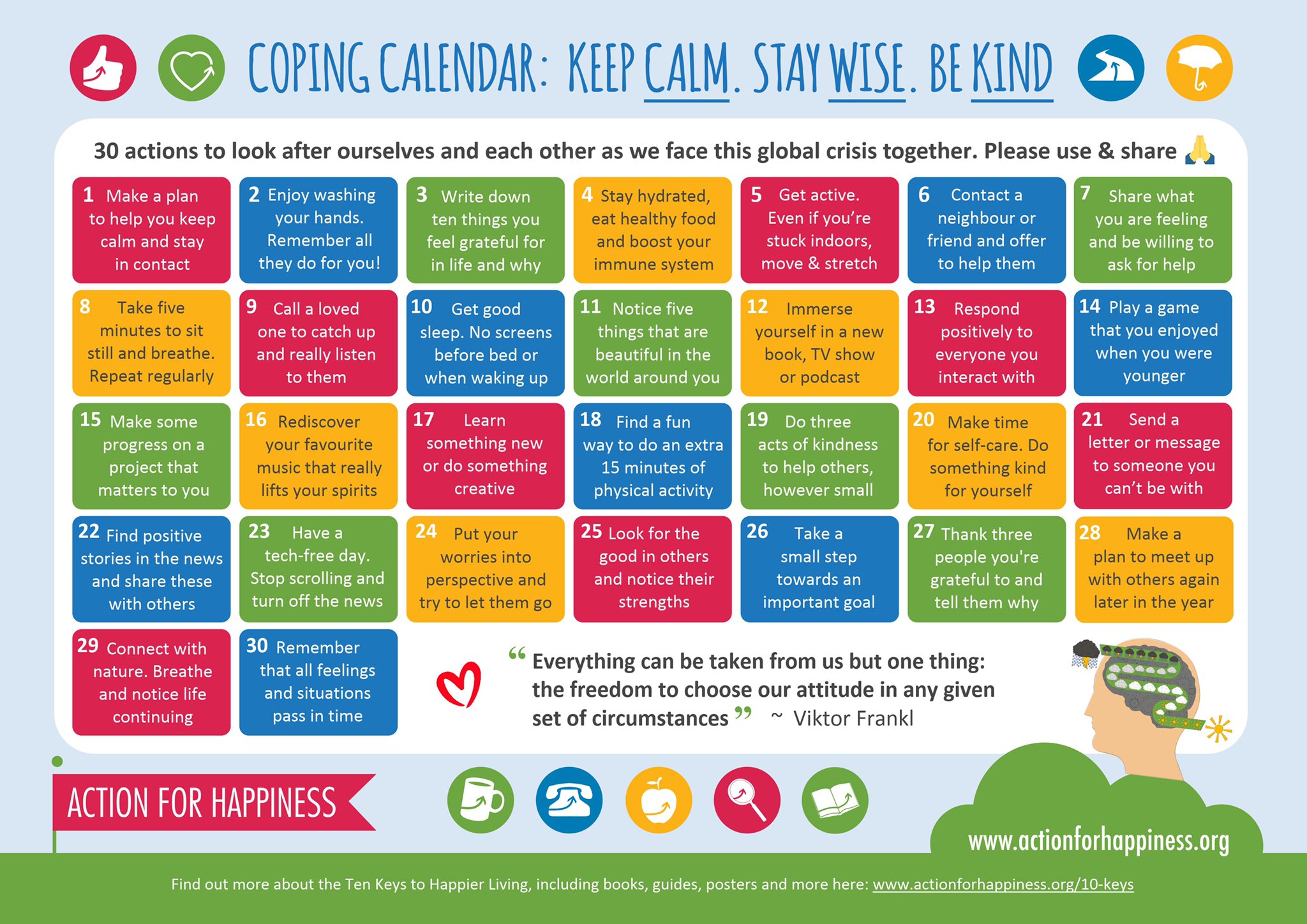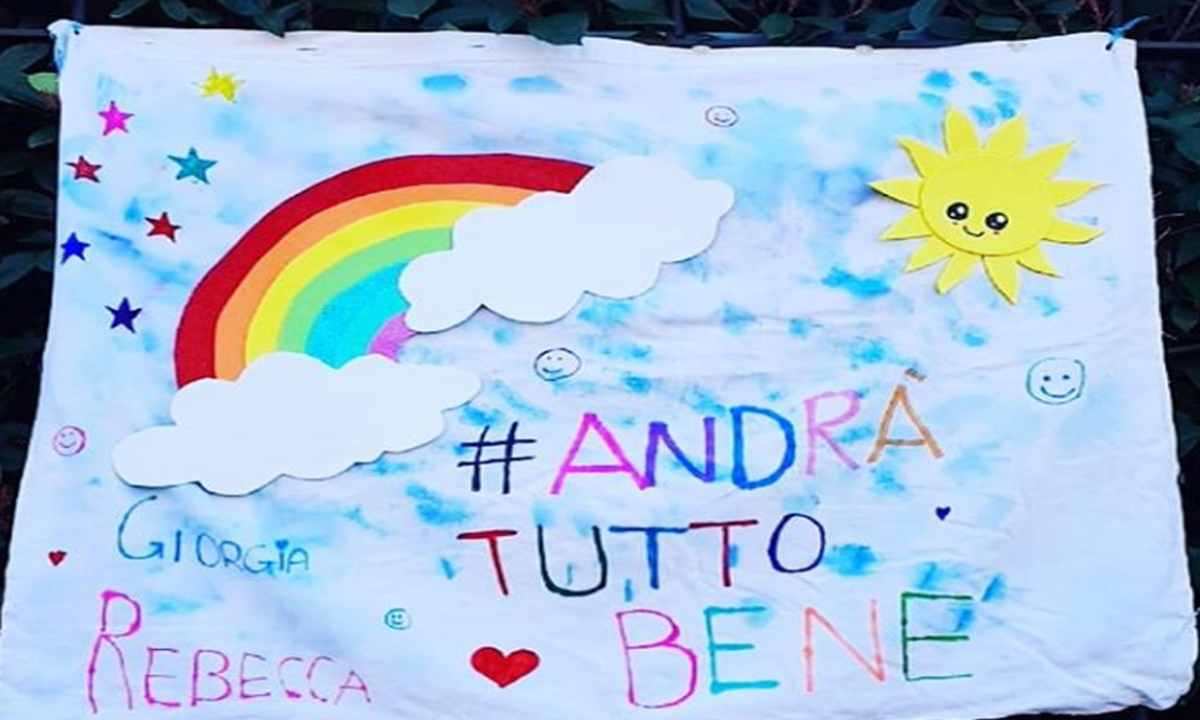Monthly Archive for March, 2020
Page 2 of 4
The thoughts of athletes can be useful to us to continue to reflect on our experience in these days. Thinking is useful to keep a reality oriented mentality not destructive or fatalistic and not even optimistic in a superficial way. These interviews concern athletes who run in the mountains and demonstrate the importance of feeling united, oriented towards the future by following the rules of the present. You can read the entire text on the World Mountain Running Association
“With the current COVID-19 crisis having such an effect on races and runners worldwide we wanted to reach out to athletes in different countries to see how they were affected and how they were coping with the situation. Many athletes in the worst affected countries, such as Italy and Spain, are very limited in being able to run, whereas for others the key restrictions are a lack of group training and obviously a lack of races. But wherever the athletes we spoke to were, what united all of them was a feeling that this crisis puts running into perspective and that we will get through it by pulling together and looking out for each other.
Francesco Puppi also feels that it’s a time to reflect, “Do we really miss the routine we constantly complain of and that the virus forces us to rethink? How badly do we miss friends, relatives, people, in a society where our network of relationships plays out in a virtual square, where our connections gives us the illusion of a human contact, a hug? Silence will help me answer these questions I keep asking myself.”
And what if you’ve targeted a particular race and it’s been cancelled? Social media is full of angry runners who’ve had their A races taken away, but the athletes we spoke to have a much more positive take on the situation. “Training every day has been a part of my lifestyle for 20 years now (wow, I’m getting old!), so regardless of racing I would be putting in the time to train and workout. What keeps me positive is knowing that all of my hard work is not for naught. When the time does come to race, you can do so confidently because you have been given the opportunity to focus on training so that you can be as prepared as possible. Think of this time as just putting money in the bank; you may not be using it now, but it sure is going to come in handy later on when you make the deposit either in the fall or next year.” says Maria Dalzot.
Likewise Francesco Puppi’s spring season (including the Rotterdam Marathon ) has been turned upside down but he is philosophical about it: “it doesn’t mean that all the work I did has been wasted. I am still proud of what I managed, of the big effort I put into those 110-mile weeks, the sore legs, the long workouts. Of the improvements and setbacks I experienced in this journey. It’s just a matter of re-thinking our goals. Keep on running because this something we love and makes us feel good, even in the worst situation. This should be the main reason behind it.”
Max King sees race cancellations as an opportunity to do other things, “I’m looking at the positive at some races being cancelled so that I can tackle other projects such as FKTs, or getting a good solid base of training in for the summer race season if we’re able to have it. There’s so many ways to stay positive and look on the bright side when something like a race gets cancelled. Sure, it’s a bummer but there will be other opportunities soon enough.”
But as a race director (of the recently cancelled Bend Marathon) he also asks runners for their understanding in these difficult times: “people just don’t understand how hard that is for a race director. We’re not given a choice about cancelling and it’s not always possible to give everyone’s money back and still be able to have a race next year. We’re small businesses most of the time and we’ve worked all year to bring racers a unique experience. It’s not like all the work and expenses are on one weekend. I think people need to understand that.”
The overwhelmingly uplifting response we got from the runners we contacted speaks volumes about our community. Nancy Hobbs points out that we need to look out for each other at this difficult time. “One of the most important things is to check in with your running friends, it’s crucial to support one another”. Andrew Douglas warns that “it can be easy to become overly anxious looking at your social media feeds with the sheer volume of posts about coronavirus; so I try to make a conscious effort to limit my access”. Looking after ourselves and each other will help us through this.”
These days it is not always possible to train as we would like because the sports center could be closed, in many sports you need to train with someone else and there is not always this opportunity, because the coaches could have personal problems and so on. Especially younger athletes than senior national team athletes may encounter these difficulties more.
For those at home I would like to give some suggestions to train anyway, even if in a different way than usual.
Set goals - It is necessary to have goals on which to orient the daily commitment, in many sports can relate more to physical and mental preparation, easier to perform at home or in spaces other than the usual training environment. So set what to do, when and for how long.
Physical Preparation - Have your coach send you the physical preparation program you can do at home. Follow it and exchange results, thinking and difficulties with him/her.
Mental Preparation - Use this days to focus more on this type of training. You can train 4 psychological skills: self-control through breathing, concentration on task and performance, imagination of your performance, and have a constructive self-talk. Do it on a daily basis, if you work with a sports psychologist, work together for this program that is good to do on a daily basis. If you would like to use this time to start such a job, you can contact a sports psychologist or write to me through the blog and I will reply.
Videos - Watching videos of other athletes’ performances is useful to understand how they face competitions, moments of difficulty, style of play or anything else that may interest you. Watch videos driven by a specific target and not like a fan.
Videos of how to play sport and spent time at home are becoming increasingly popular.
They put you in a good mood and are really creative.
So much for the coronavirus.
#stayathome
“As long as I breathe I hope,” Cicero said, today we could translate it into “as long as there is life there is hope,” more brutal but equally true. The coronavirus affects precisely this capacity that is at the basis of the physiological and psychological needs of living beings. You may not drink or eat for a few days, but you can’t breath for a few minutes if you are not a champion of underwater apnea. Correct breathing is at the base of self-control and the stresses of our daily life determine as a first negative effect our own breathing problems. Fear makes us block our breath, anger hates it to allow us to scream at someone, sadness reduces it to a trickle of air that goes in and out and anxiety makes us breathe in a shallow and superficial way. Breathing reflects our level of physical fitness and well-being and one of the effects of this new virus is to block it, making assisted breathing necessary in many cases. Mario Garattini, founder of the Mario Negri Pharmacological Research Institute, MIlano, said that “everything will depend on us, on our ability to avoid contagion. Let’s adhere to the dispositions. If everyone had adequate lifestyles and there was adequate prevention, perhaps we would be more resistant”.
This awareness, combined with the worldwide spread of the coronavirus and its devastating effects, should have frightened people enough to never leave their homes again, motivating them to respect the rules that have been spread and whose implementation is mandatory. Nevertheless, thousands of people have continued to travel throughout our country and the police have fined more than 2000 people for violating the restrictive rules of the government decree. What are the reasons for this behaviour? Superficiality, too positive approach to the problem, anxiety and a lack of habit of following the rules. Superficiality is a kind of magic thought, in which people think that the coronavirus is a problem that affects others, such as the elderly and sick, is a way to protect themselves from feelings of sadness in the short term. These people deny the existence of the problem and, therefore, engage in behaviour to escape from their reality. A second type of attitude is people who have an approach not mediated by reality and that is too positive, such as those who thought at the beginning of the spread that it was little more than a flu. They are individuals who live under the illusion of positive short-term solutions. A bit like those who start a diet or want to quit smoking and are confident that they will succeed just because they have made this decision, they are illusory forms of thinking so that at the first obstacles people give up following the new rules they have given themselves because it is too difficult. In the case of the coronavirus the problem manifests itself in the difficulty in maintaining the rules of physical distancing from other people and then they go out, take a walk with friends and take their children to play in the gardens. Similar for the effects but different in reasons is the approach of those who feel angst in staying at home. They perceive themselves as prisoners, feel violated in their freedom of movement and live this condition in a claustrophobic way. To overcome it the only solution in going outside. Finally, there are those who live reactively to the rules, have an attitude of eternal adolescents fighting against the norms of the adult world. They find it difficult to make the rules their own, which in this case are mandatory, and to develop a pluralistic concept of social coexistence, based not only on their rights but also on their duties towards the community.
These are some possible interpretations of behaviours that in a period of world crisis like the one we are experiencing and of upheaval of our daily life can explain the actions of the many who seem not to want to adapt to the new rules.
Science: when this coronavirus nightmare will be behind us, let’s remember the essential role of science to solve the problem. And let us not forget to eliminate from any public debate all those charlatans who have confused public opinion and poisoned the social climate. Let us also reduce to silence the people who play a public function and who have given space to these charlatans, discrediting the work of the scientific community.
Some ideas published, to confirm that in these days the awareness about the science role is increased:
In Italy, “over the days, scientific awareness has also grown, in the map indicated with the term “modernity”, where it is understood that the modernity of science allows to better govern phenomena. This space has constantly grown and has allowed to lower the anxious part, even if it has maintained the feeling of fear. That is, the greater awareness has taken away indistinction from the epidemic, but has confirmed its dangerousness”.
Others can be found reading the HuffingtonPost
In 2004 the Asian Journal of Social Psychology published a special issue titled SPECIAL ISSUE ON PSYCHOLOGY OF SEVERE ACUTE RESPIRATORY SYNDROME (SARS), by Cecilia Cheng and Catherine So-kum Tang (Eds.)
The subtitle is very interesting, putting the focus on the behaviors related to the background in different culture: The psychology behind the masks: Psychological responses to the severe acute respiratory syndrome outbreak in different regions.
Here I propose a synthesis. I believe it could help us to cope today with COVID-19
In 2002/03 the SARS epidemic alerted the world that public health is no longer a local issue. In this era of globalization, not only people and information but also viruses flow freely without borders. The treatment and prevention of novel, unknown diseases require the joint effort of government bodies and health-care professionals from various countries.
- Could the current knowledge yielded from coping research help in the understanding of people’s attempts to handle the SARS outbreak?
- Because SARS affected a number of regions, including people from both Asian and Western cultures, did individuals from different cultures perceive and cope with the crisis in distinct manners?
- Did people attempt to handle the SARS epidemic in ways that were similar to those with which they attempt to handle stressful daily events?
- To cope with the outbreak, why did some people engage in preventive health behavior while others ignore the use of preventive measures?
The findings revealed that participants who tended to use wishful thinking (wishing SARS would go away or somehow be over with) were more likely to avoid going to public areas and avoid people who they believed to be affected by SARS. Wishful thinking does not appear to facilitate engaging in critically important health behaviors, such as hand washing and using disinfectants to clean potentially contaminated surfaces
Those who tended to adopt empathic responses (try to understand how the other person felt about SARS) were more likely to undertake measures to prevent SARS, such as wearing face masks and exercising regularly. Therefore they were not only less likely to report avoiding people who may be perceived as potentially having SARS but also more likely to report engaging in precautionary measures and health behaviors likely to be viewed as effective. Hence, those who report using empathic responding in response to SARS appear to use effective precautionary health behaviors without engaging in avoidant health behaviors that were associated with significant economic and societal costs.
Cross-cultural differences in optimistic thinking between the Chinese and European Canadians during the SARS outbreak. The participants were recruited from Beijing and Toronto, and the two samples demonstrated unrealistic optimism, that is, the perception of oneself as less likely than an average person to contract SARS. Compared to their Canadian counterparts, the Chinese participants showed greater unrealistic optimism when estimating their own risks of being infected, but took more preventive measures. The authors concluded that the Chinese dialectical thinking style may have promoted the belief that both negative consequences and positive changes could coexist during the SARS crisis. This belief may have propelled the Chinese to think about their future in a more positive light, and enhance their motivation to adopt a preventive approach to cope with the crisis.
Compared to Singaporean participants who endorsed fewer of the Chinese values (i.e. prudence, industry, and civic harmony), those with a greater tendency to adopt these values were characterized by higher levels of SARS-related fears, greater defensive pessimism, the adoption of more health behaviors, and the experience of more adverse outcomes related to the outbreak.
They tended to perceive most SARS- related stressful events as uncontrollable, and used more emotion-focused coping to handle such events. These findings indicate that individuals had a propensity to be less flexible, both cognitively and behaviorally, in their attempts to handle the SARS epidemic than in their usual practice of handling stress.
Hong Kong high school students in terms of social-cognitive biases after the SARS outbreak. They found that compared to those who practiced SARS preventive behavior (i.e. the practicers), those who did not (i.e. the non- practicers) were more prone to two types of social-cognitive biases: false consensus bias and the actor-observer bias. To elaborate, the non-practicers tended to underestimate the prevalence and importance of prosocial concerns in the preventive behavior that was commonly adopted by practicers during the outbreak.
These findings shed light on how Hong Kong adolescents evaluated prevailing norms and their own motives in the prevention of an emerging epidemic. The authors pointed out that non-practicers of health behavior may believe that their behavioral pattern is widely shared and acceptable in the community, and may thus be less motivated to change their behavior.
Chanaka N. Kahathuduwa et al. (2019). The risk of overweight and obesity in children with autism spectrum disorders: A systematic review and meta-analysis. Obesity Reviews, 20, 667–1679.
This meta‐analysis provides evidence‐based support to suggest that children with autism spectrum disorders (ASD) seem to have a greater risk of developing overweight or obesity, particularly when living in the United States. Our results also highlighted non‐Caucasian race, increasing age, female sex, and living in the United States as potential factors associated with an increased risk of developing overweight and obesity in children with ASD.
The mechanisms through which ASD may increase the risk of excessive weight gain and the contributions of the moderators of this association need to be established in pancontinental studies.
Based on our findings, awareness must be raised among practitioners, especially in the United States, about the increased risk of obesity in children with ASD. Clinicians need to be vigilant about these issues, identify potential contributors to the association between ASD and obesity, and develop early interventions to reduce weight gain in this pediatric population.

/cdn.vox-cdn.com/uploads/chorus_image/image/66458443/GettyImages_1201647537.0.jpg)






